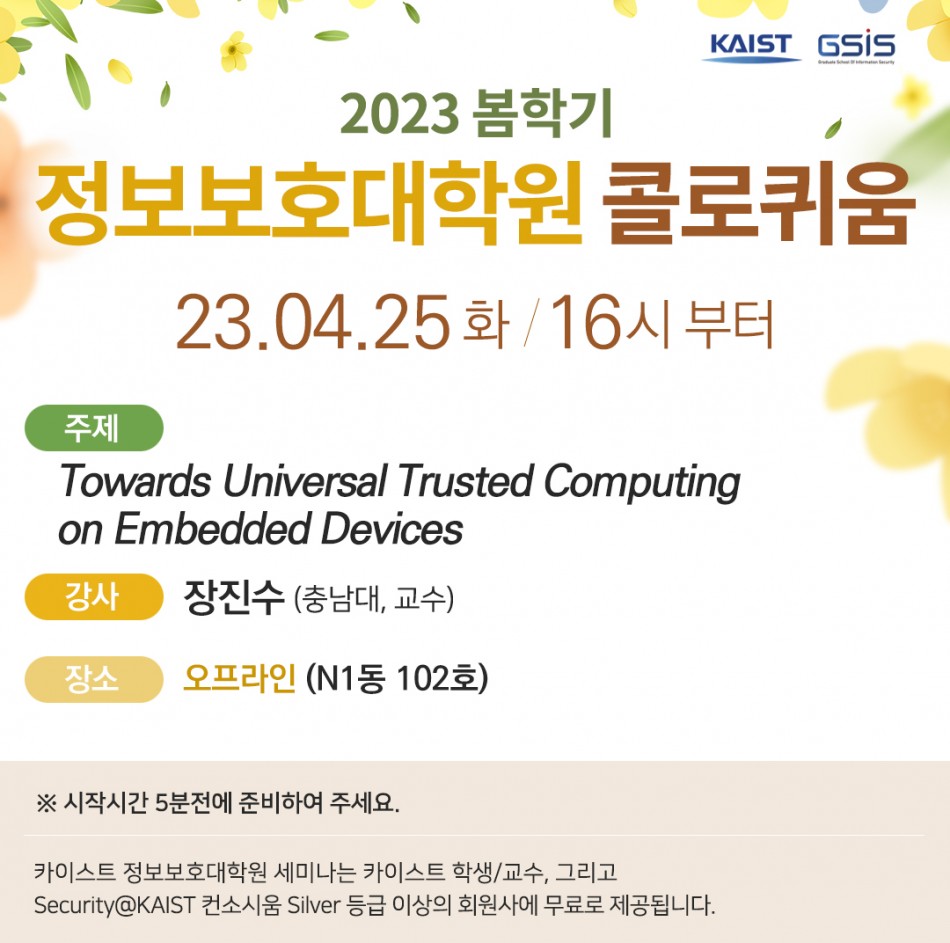

세미나
| 2023.04.25(화) 정보보호대학원 2023년 봄학기 콜로퀴움 - 장진수 |
|---|
| 작성일2023-04-17 |
|
정보보호대학원에서는 4월 25일 오후 4시에 아래와 같이 콜로퀴움을 개최하고자 합니다. 많은 참석 부탁드립니다.
o 일 시: 23. 04. 25(화) 16:00~ ㅡㅡㅡ
♣ Title: Towards Universal Trusted Computing on Embedded Devices
♣ Abstract The Trusted Execution Environment (TEE) is a critical technique for establishing trusted computing in a system. While ARM TrustZone is a widely adopted commercial technology for building TEEs in embedded and mobile devices, not all TrustZone extensions, such as those for memory isolation and secure IO, are mandatory components. As a result, some System-on-Chips (SoCs) may lack support for these extensions, thereby disabling the creation of a TEE. In this talk, I introduce MyTEE, a solution that enables the construction of a TEE even in worst-case environments where major hardware security primitives, such as ARM TrustZone extensions for memory access control, are absent. MyTEE's core components include crafting page tables for robust memory isolation, filtering Direct Memory Access (DMA) packets, and enabling secure IO. Specifically, for secure IO, MyTEE shields the IO buffers and memory-mapped registers of controllers and securely elevates the privilege of partial code blocks of device drivers to grant permission to access protected objects. This approach eliminates the need to host the device driver in the TEE, whether partially or entirely, thereby mitigating the potential introduction of new attack surfaces. We have implemented a proof-of-concept (PoC) of MyTEE on the Raspberry Pi 3 board, demonstrating three examples of secure IO with hardware TPM, framebuffer, and USB keyboard.
♣ Bio Jinsoo Jang has been working in the field of systems security, focusing on strengthening the Trusted Execution Environment (TEE), enhancing its usability for third-party users, and leveraging general hardware features for defensive measures. He holds a B.S. degree from Ajou University and M.S. and Ph.D. degrees in Information Security from the Korea Advanced Institute of Science and Technology (KAIST). Currently, he serves as an Assistant Professor in the Department of Computer Science and Engineering at Chungnam National University (CNU).
|




